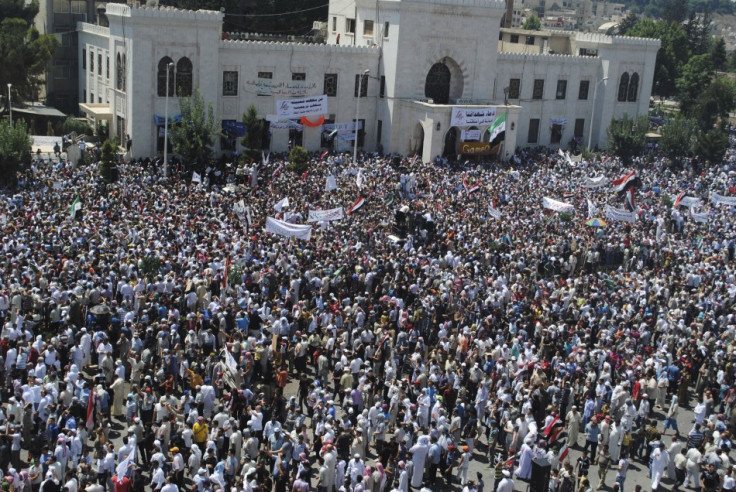Yemen and Syria: Are the Civilians’ Rights Not a UN Security Council Priority?

Despite months of protests and a harsh response from the governments of both Yemen and Syria, it seems that in both countries protesters are left to fend for themselves as despite calls for calm to be restored, the international community has instead focused on Libya.
As the situation continues to spiral out of control and with the total casualties rising by the day, the inability to bring about regime change in Syria and Yemen raises questions.
While Yemen was seen as a strong and potentially very dangerous Al-Qaeda hotspot over a year ago, the internal uprising has received far less support than in the other 'Arab Spring' countries and after months of protests conflicts opposing the protesters to the pro-government forces are becoming more violent.
As the protests engulfed the streets of the Yemeni capital of Sana'a, protesters headed closer to the home districts of senior government figures.
Since February civilians have taken to the streets asking for regime change and months of conflict have now put an even bigger strain on the economic situation of the already impoverished country.
With organisations warning the country was on the brink of a humanitarian crisis as far back as two years ago and with calls for help reiterated by UNICEF in June of this year, the situation is becoming more alarming.
"This country is absolutely in dire need of humanitarian assistance," Geert Cappelaere Yemen representative for the U.N. children's agency UNICEF said at the time.
"We hope that a solution to the political stalemate will come soon, but even if it comes this is not an end to the problems. We cannot emphasise that enough. Forty per cent of the population lives below the poverty line and the repercussions of this are just huge, " he added.
Three months later and the conflict has nothing but intensified as the latest figures advanced say that at least 60 people have been killed since Sunday, as anti-regime protesters step up their campaign to topple President Ali Abdullah Saleh and the strong military force that keeps him in power.
One of the latest incidents reported includes a mortar attack on unarmed protesters which killed nine people, according two medical officials.
The brutality of the regime's forces response to the protests is extreme as President Saleh's forces have hit back with attacks by rooftop snipers and shelling of protest encampments.
In Geneva, the United Nations also reported that four children were killed by live ammunition during Sunday's and Monday's unrest and Marixie Mercado, a spokeswoman for the UN children's' fund, also said that 18 minors were injured.
After the dawn Muslim prayer today, the security forces' continued with three protesters, three rebel soldiers and a bystander killed in the capital while two other people were also left dead in the southern city of Taiz.
Just like in Yemen, Syrian protesters are still fighting for regime change despite thousands of deaths linked to the conflict which opposes the anti-regime protesters to the Assad regime and its forces with five more deaths reported in the Homs province after a raid by the government's troops.
According to the Syrian Observatory for Human Rights tanks have cut off roads and there was heavy firing in the area of Houla with authorities firing on protesters and conducting arrests in several other cities including Aleppo, Syria's second city, in Deir al-Zour in the east, and in the coastal cities of Latakia and Baniyas.
Meanwhile, the Local Co-ordination Committees, an opposition group reported arrests and shooting in suburbs of Damascus and crackdowns in the north-western province of Idlib.
UN figures suggest that at least 2,700 people have died in Syria's crackdown on protests since February and despite embargos and sanctions set up by thy the UN, analysts have warned the regime could subsist in power for much longer.
"As of today, 2,700 people, including at least 100 children, have been killed by military and security forces since mass protests erupted in mid-March," the deputy UN High Commissioner for Human Rights, Kyung-wha Kang, told the UN Human Rights Council.
"Despite the mounting international pressure in the past six months since the start of protests... the bloody crackdown in Syria has intensified," she said.
Kyung-wha Kang also stressed "the importance of holding perpetrators of crimes against humanity accountable", adding that despite promises of reform, the government had "continuously undermined those promises by more excessive use of force, killing of demonstrators, mass arrests, raids on cities, torture and other abuses".
At the UN in New York, French Foreign Minister Alain Juppe said "crimes against humanity" were being committed in Syria.
"The silence of the Security Council is unacceptable," he said.
© Copyright IBTimes 2025. All rights reserved.





















